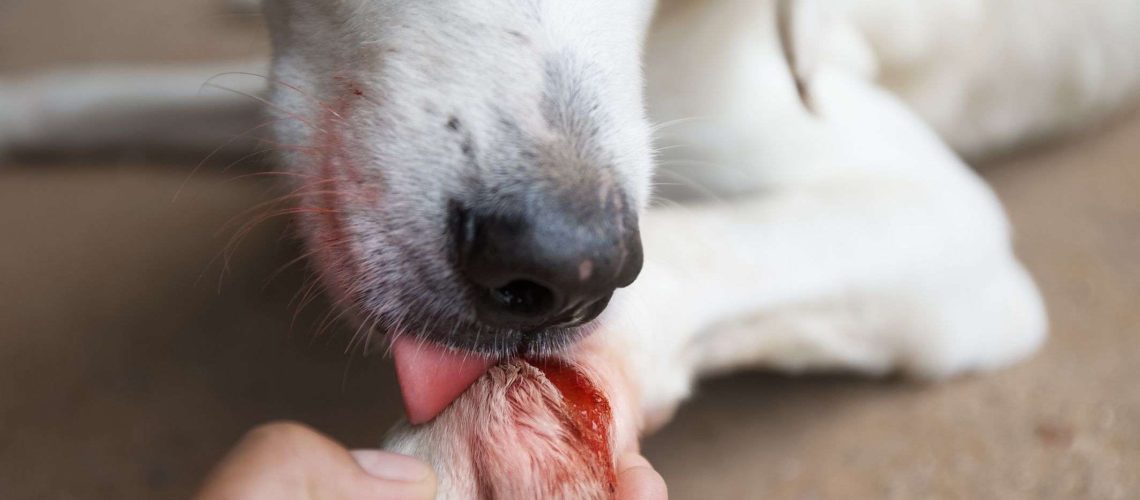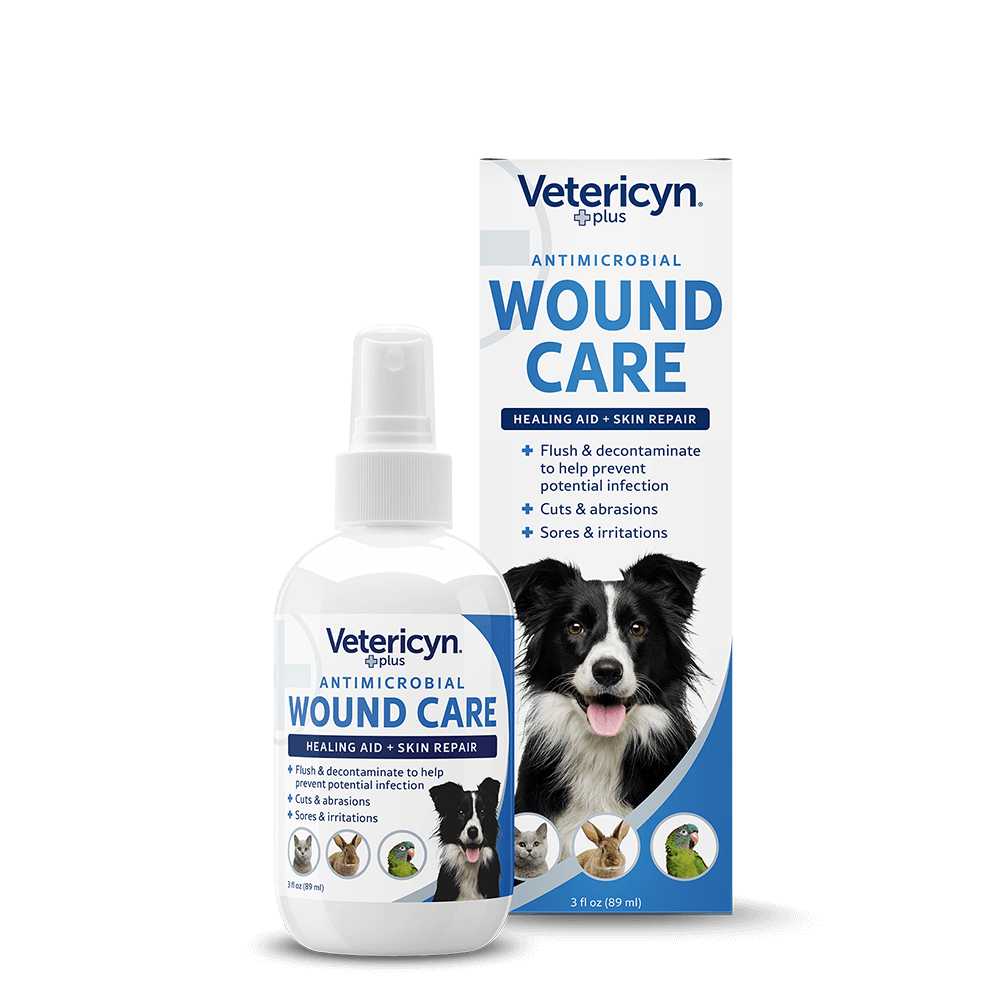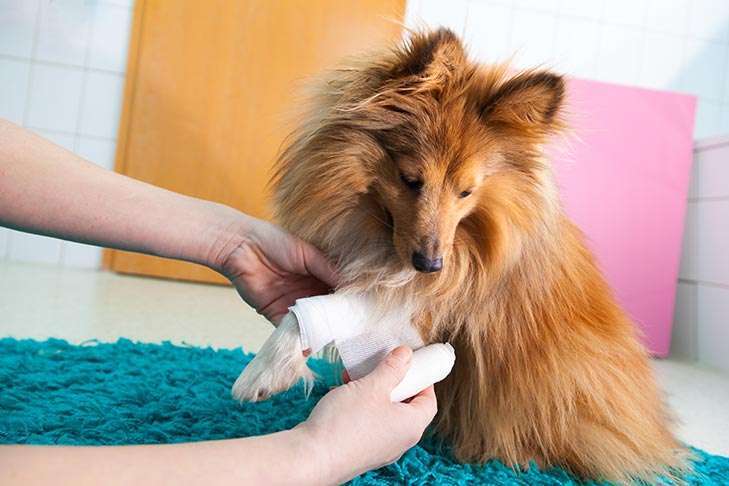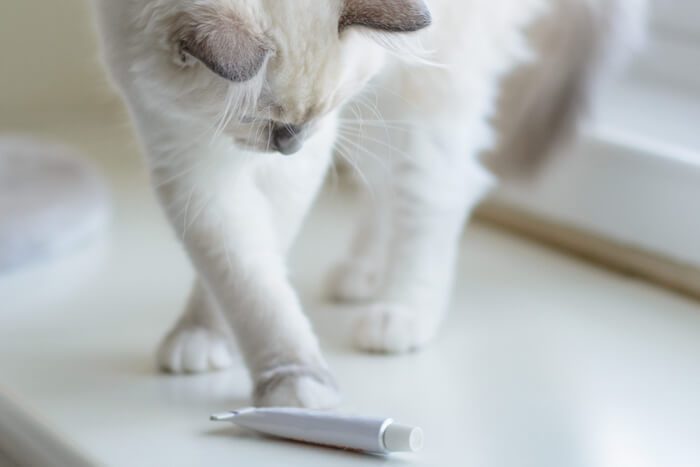Key Takeaways:
-
- Licking wounds is a natural instinct for dogs as it helps clean the area and remove debris.
- Saliva contains enzymes that can promote healing by killing bacteria and aiding in tissue repair.
- Excessive licking can delay wound healing and may even lead to infection or further injury.
- It's important to prevent dogs from licking their wounds excessively by using protective measures such as cones or bandages.
- Consulting a veterinarian is crucial if a wound appears infected, does not heal, or if excessive licking persists despite preventative measures.
Introduction:
Have you ever wondered why dogs lick their wounds? It may seem like a simple behavior, but understanding the reasons behind it can provide valuable insights into our furry friends' instinctual behaviors. Exploring this topic not only offers a fascinating glimpse into the world of dogs but also sheds light on their remarkable ability to heal themselves. By unraveling the mystery behind this common canine behavior, we can gain a deeper appreciation for our four-legged companions and potentially improve their overall well-being. So, let's embark on this journey together and uncover the secrets of why dogs lick their wounds, revealing the incredible bond between humans and animals along the way.
Why do dogs lick their wounds?
Dogs have a natural instinct to lick their wounds when they get injured. It might seem strange, but licking actually serves a purpose for them. When a dog licks its wound, it helps to clean the area and remove any dirt or debris that could cause an infection. The saliva of a dog contains enzymes that have antibacterial properties, which can help kill germs and promote healing.
Another reason why dogs lick their wounds is that it provides them with comfort and pain relief. Licking releases endorphins in their brain, which are feel-good chemicals that can help reduce pain and make them feel better. So, when a dog licks its wound, it's not just trying to clean it but also trying to soothe itself.
The instinctual behavior of dogs
Licking wounds is an instinctual behavior for dogs that has been passed down from their wild ancestors. In the wild, animals often lick their wounds as a way to keep them clean and prevent infections. Dogs still have this instinct even though they are domesticated pets now.
Comforting themselves through licking
When dogs are injured, they may experience discomfort or pain. Licking their wounds provides them with some relief by releasing endorphins in their brain. Endorphins act as natural painkillers and can help alleviate the discomfort associated with injuries.
List of reasons why dogs lick their wounds:
- Cleaning the wound by removing dirt and debris
- Killing germs with antibacterial enzymes in saliva
- Promoting healing through increased blood flow
- Soothing themselves by releasing endorphins
- Relieving pain and discomfort
The purpose of a dog licking its wounds
When a dog gets injured, one of its natural instincts is to lick the wound. This behavior serves several purposes. Firstly, licking helps to clean the wound by removing dirt, debris, and bacteria that may have entered the injury. The dog's saliva contains enzymes that can help break down dead tissue and promote healing. Additionally, licking stimulates blood flow to the area, which can aid in the delivery of oxygen and nutrients necessary for the healing process.
However, it's important to note that excessive licking can be detrimental to the wound's healing process. While some licking is beneficial, too much can introduce more bacteria into the wound or cause further damage by irritating the surrounding skin. Therefore, it's crucial for pet owners to monitor their dogs' licking behavior and take appropriate measures to prevent excessive licking.
Why do dogs instinctively lick their wounds?
Dogs instinctively lick their wounds as a way to alleviate pain and discomfort. Licking releases endorphins in their brain, providing them with a sense of relief. It also acts as a form of self-soothing behavior similar to humans rubbing or touching an injured area.
What are some signs that a dog is excessively licking its wound?
- Constantly focusing on one area and ignoring other activities
- Licking for prolonged periods without interruption
- Visible redness or irritation around the wound
- Skin becoming raw or developing sores due to excessive licking
How licking helps a dog's wound heal
Licking plays a crucial role in promoting wound healing in dogs. As mentioned earlier, when a dog licks its wound, it helps to clean the area by removing debris and bacteria. The saliva of dogs contains antibacterial properties that can help prevent infection in the wound. Additionally, the act of licking stimulates the production of certain growth factors and enzymes that aid in tissue repair and regeneration.
Furthermore, licking provides a moist environment for the wound, which is essential for optimal healing. Moisture helps to keep the wound from drying out, allowing new cells to grow more efficiently. It also helps to soften scabs or crusts that may have formed, making them easier to remove naturally.
What are some risks associated with excessive licking?
While licking can be beneficial, excessive licking can pose risks to a dog's wound healing process. Excessive moisture from constant licking can delay healing by preventing proper scab formation. It can also introduce additional bacteria into the wound, increasing the risk of infection. Furthermore, continuous licking can cause irritation and inflammation around the wound site, leading to further complications.
How can I prevent my dog from excessively licking its wounds?
- Use an Elizabethan collar (also known as a cone) to restrict access to the wound
- Apply bitter-tasting sprays or ointments on or around the wound to deter licking
- Cover the wound with a clean bandage or dressing
- Keep your dog distracted with toys or treats
Risks and dangers of a dog licking its wounds
While there are benefits to a dog licking its wounds, it's essential to be aware of potential risks and dangers associated with this behavior. One significant risk is infection. Dogs' mouths contain various bacteria that may not be harmful under normal circumstances but can cause infections when introduced into an open wound. Additionally, excessive licking can delay the healing process by preventing the formation of a protective scab and irritating the surrounding skin.
What are some common infections that can occur from excessive licking?
Some common infections that can result from excessive licking include:
- Cellulitis: A bacterial infection that affects the deeper layers of the skin
- Pyoderma: A skin infection characterized by pustules or pus-filled bumps
- Staphylococcal Infection: An infection caused by Staphylococcus bacteria
How can I tell if my dog's wound is infected?
It's important to monitor your dog's wound for signs of infection. Some common indicators include:
- Inflammation or swelling around the wound
- Persistent redness or warmth in the area
- Pus-like discharge or foul odor
- Fever or lethargy
Can dogs' saliva help heal their wounds?
Dogs' saliva does contain certain enzymes and antibacterial properties that can aid in wound healing to some extent. The enzymes in their saliva help break down dead tissue, promoting faster healing. Additionally, some components in their saliva have antimicrobial properties, which can help prevent infections.
Are there any drawbacks to dogs licking their wounds?
While dogs' saliva has beneficial properties, there are also drawbacks to consider. Dogs' mouths contain various bacteria, and excessive licking can introduce these bacteria into an open wound, increasing the risk of infection. Furthermore, constant licking can irritate the wound site and delay healing by preventing proper scab formation.
What should I do if my dog's wound is not healing despite licking?
If your dog's wound is not healing or showing signs of improvement despite licking, it's crucial to consult a veterinarian. They can assess the wound and determine if additional treatment or intervention is necessary.
Alternative ways to prevent infection in a dog's wound without licking
While licking can have some benefits, there are alternative methods to prevent infection in a dog's wound without relying solely on this behavior. These methods include:
Keeping the wound clean and dry
Clean the wound gently with mild antiseptic solutions recommended by your veterinarian. Avoid using harsh chemicals or alcohol-based products as they can further irritate the wound. After cleaning, ensure that the area is thoroughly dried before applying any dressings or ointments.
Using topical antibiotics or antiseptics
Your veterinarian may prescribe topical antibiotics or antiseptics to apply directly to the wound. These medications help kill bacteria and prevent infection. Follow your vet's instructions carefully when using these products.
Applying protective dressings
Covering the wound with a clean bandage or dressing can provide an extra layer of protection against bacteria and contaminants. Ensure that the dressing is changed regularly and kept clean to avoid trapping moisture that could impede healing.
Administering oral antibiotics, if necessary
In cases where the risk of infection is high, your veterinarian may prescribe oral antibiotics to help prevent or treat any potential infections. It's important to follow the prescribed dosage and complete the full course of medication as directed by your vet.
By following these alternative methods, you can effectively prevent infection in your dog's wound and promote optimal healing without relying solely on licking. Remember to consult your veterinarian for specific guidance tailored to your dog's individual needs.
In conclusion, dogs lick their wounds because it helps to clean the area and remove dirt or bacteria. However, excessive licking can delay the healing process, so it's important for owners to monitor and prevent overlicking.
Should you let a dog lick their wounds?
Although licking wounds may provide some defense against certain bacteria, there are significant disadvantages to allowing your dog to engage in this behavior. Excessive licking can cause irritation and create conditions for hot spots, infections, and self-inflicted harm. Additionally, licking and chewing can impede the healing process by reopening wounds.
Why do dog licks heal human wounds?
The act of dogs licking human wounds has its benefits. Canine saliva contains compounds such as lysozyme and peroxidase enzymes which can help eliminate certain bacteria. Additionally, it also contains substances like lactoferrin, defensins, and cystatins that have antibacterial properties. Moreover, opiorphin found in canine saliva can provide pain relief.
Does dog saliva heal wounds?
Histatins, a type of protein found in dog saliva, have the ability to fight against infections. Studies have also indicated that there are additional beneficial substances in a dog's saliva that can aid in protecting cuts from becoming infected. Evidence suggests that wounds that are licked by dogs have a healing process that is twice as fast compared to wounds that are not licked.
Can I put Neosporin on my dog?
Neosporin is generally considered safe for dogs, although excessive ingestion can cause illness. Alternatively, there are wound care ointments and medicated wipes specifically designed for pets that can be used to prevent infection. If your dog has a deep wound that continues to bleed and requires bandaging, it is advised to consult a veterinarian.
Can I put a bandaid on my dog?
Is it possible to use a Band-Aid on a dog? It is not advisable to use a Band-Aid on a dog because the adhesive may lead to skin irritation and infections. Instead, it is recommended to use non-stick pads or gauze along with tape to protect the wound. It is always best to consult a veterinarian for appropriate wound care.
Is it bad for dogs to lick period blood?
It is not necessarily harmful for your dog to lick her menstrual waste, but it can potentially result in bacterial infections.

















